Abstract
Subtherapeutic levels of oxytetracycline in animal feeds have been evaluated to determine their influence on the relative quantity, prevalence, shedding, and antibiotic susceptibility of Salmonella typhimurium in swine, calves, and chickens, when compared with nonmedicated controls. The medicated groups were fed rations containing oxytetracycline commencing 5 days prior to oral inoculation with S. typhimurium and continuing through a 28-day post-inoculation period. Colonization of S. typhimurium occurred in all three animal species as evidenced by clinical signs of infection and/or colony counts in feces measured on seven separate occasions over the 28-day observation period. The accumulated data demonstrate that the subtherapeutic use of oxytetracycline did not bring about any increases in the quantity, prevalence, or shedding of S. typhimurium in swine, calves, and chickens. In fact, the medication generally brought about a decrease in the percentage of animals carrying S. typhimurium during the study period. In contrast to results in swine and calves, there was a significant occurrence of S. typhimurium resistance to oxytetracycline in chickens. Resistant colonies were isolated from chickens sporadically but never on more than two consecutive test periods. These isolates were also resistant to streptomycin, but not to the other six antibiotics tested. The population of resistant S. typhimurium isolated from medicated chickens was no larger than that of susceptible S. typhimurium isolated from the nonmedicated animals. It is concluded that no evidence has been obtained which would relate the continuous low-level feeding of oxytetracycline for a 4-week period to an increased incidence of disease in animals or as a hazard to humans.
Full text
PDF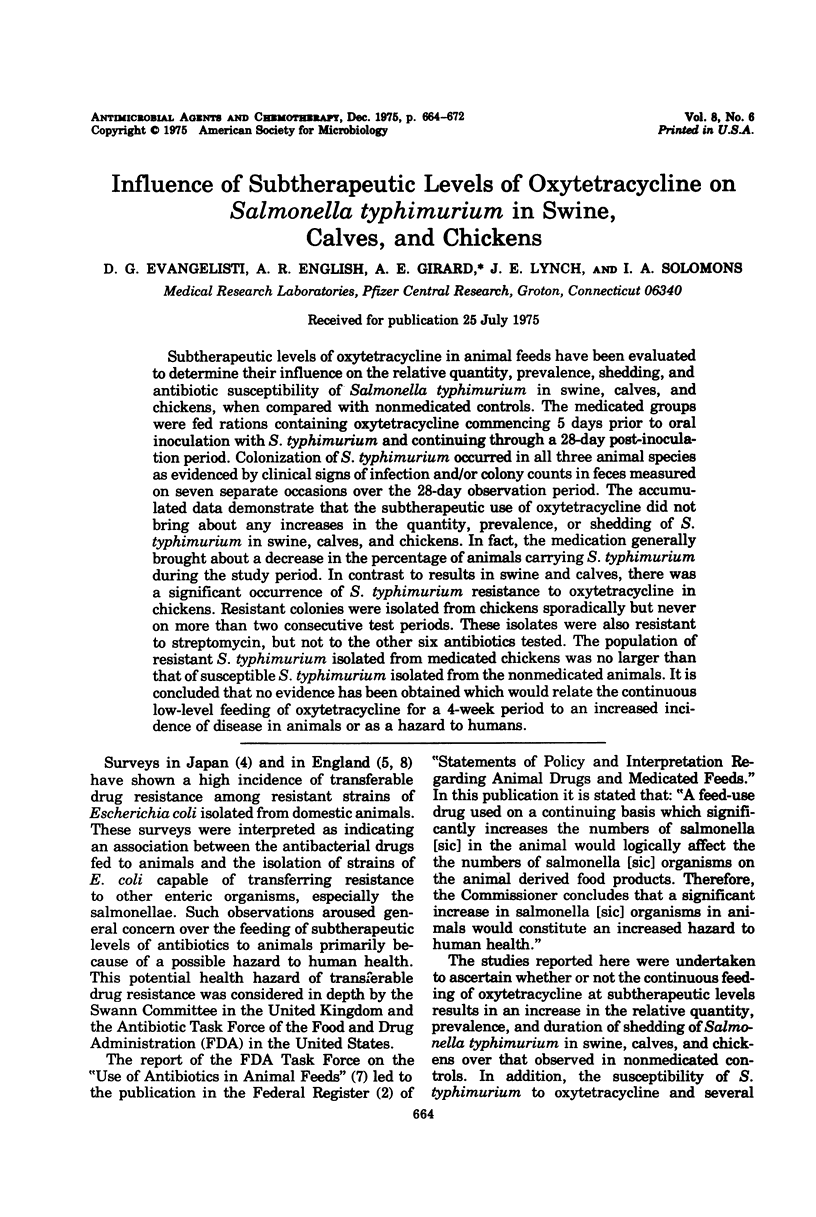
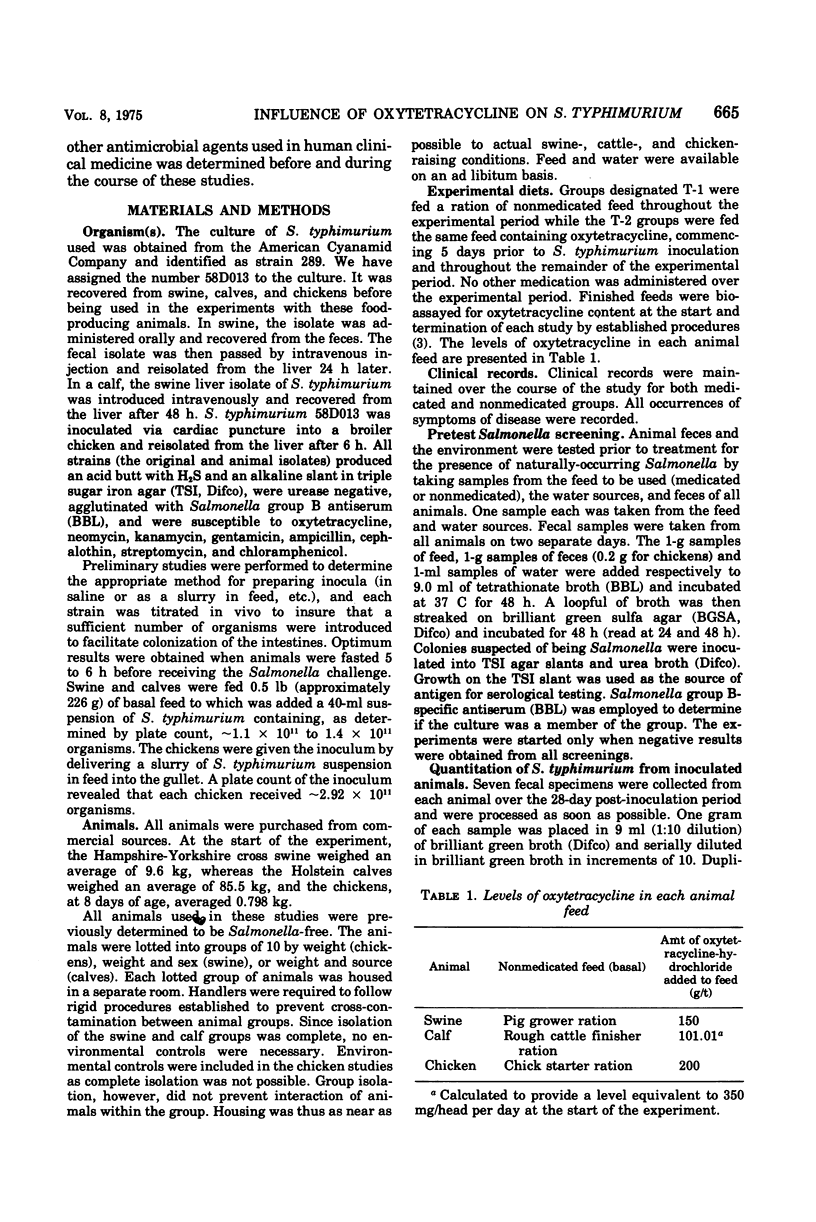
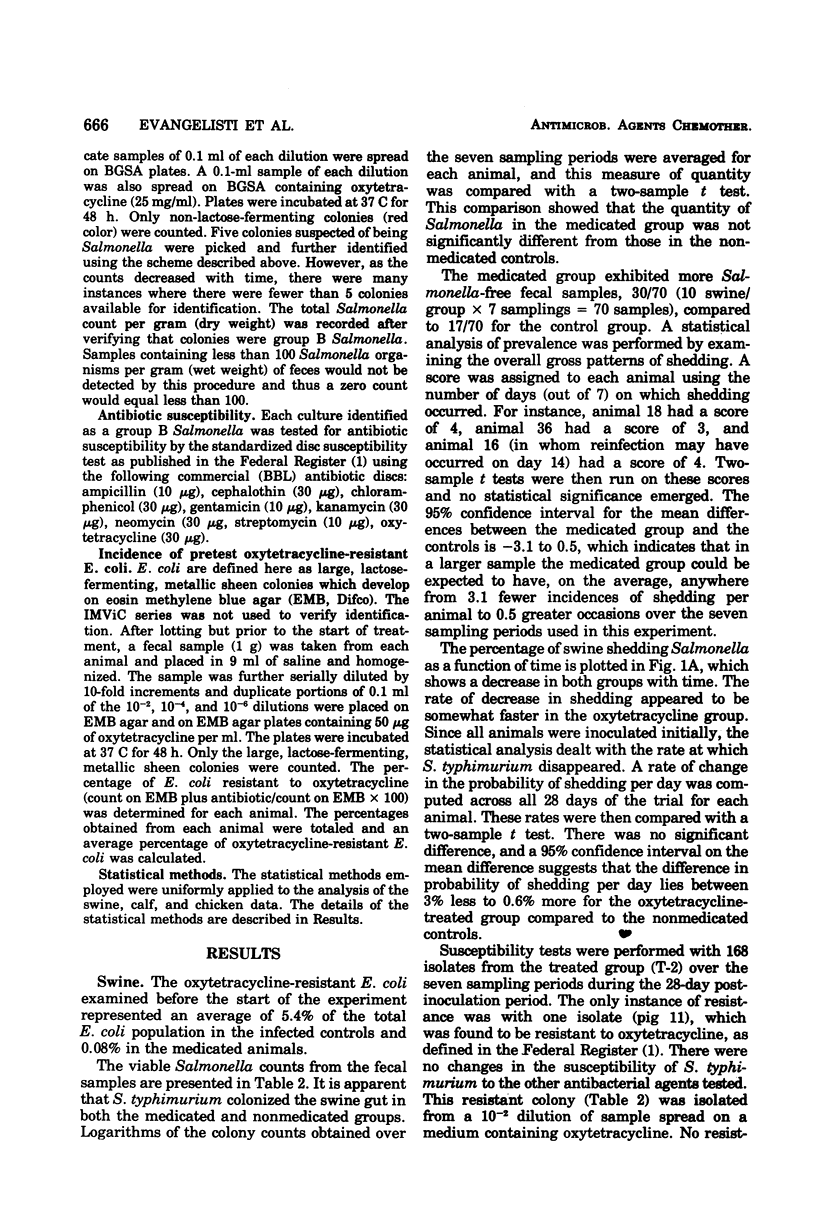
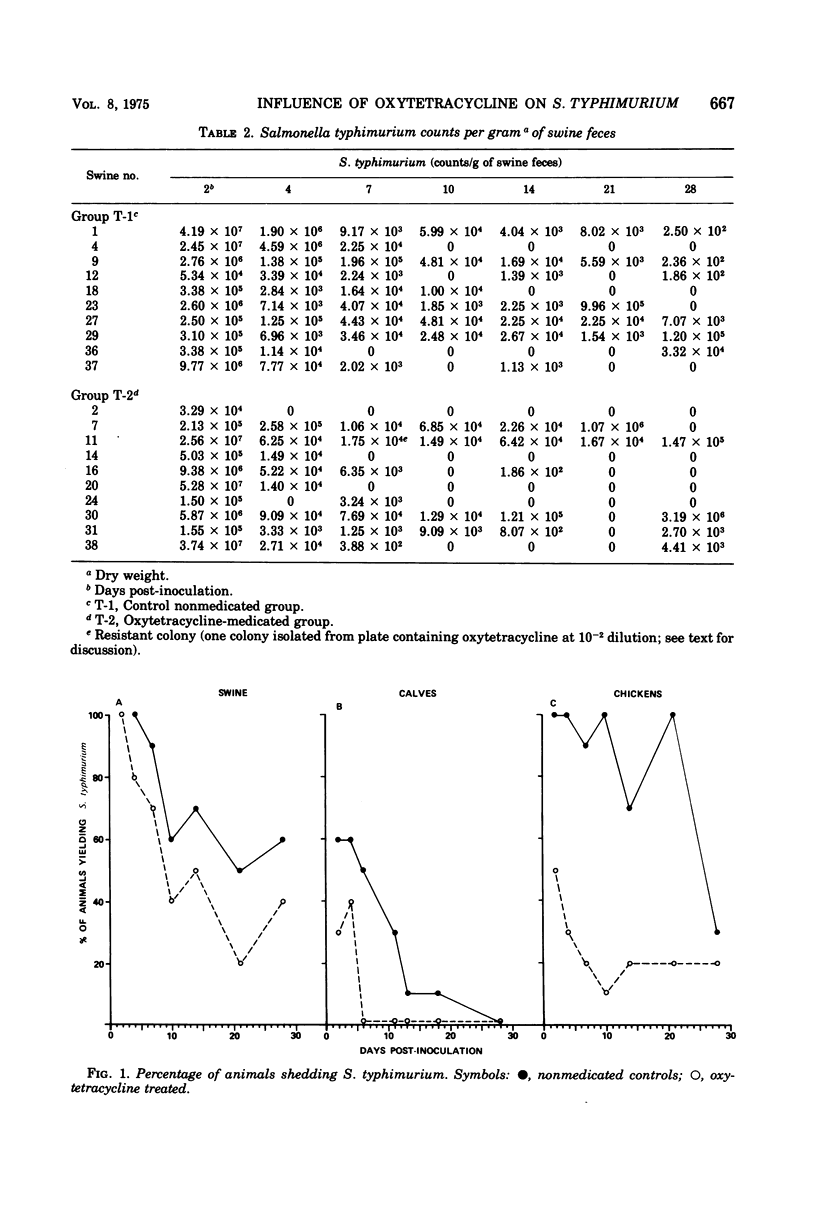
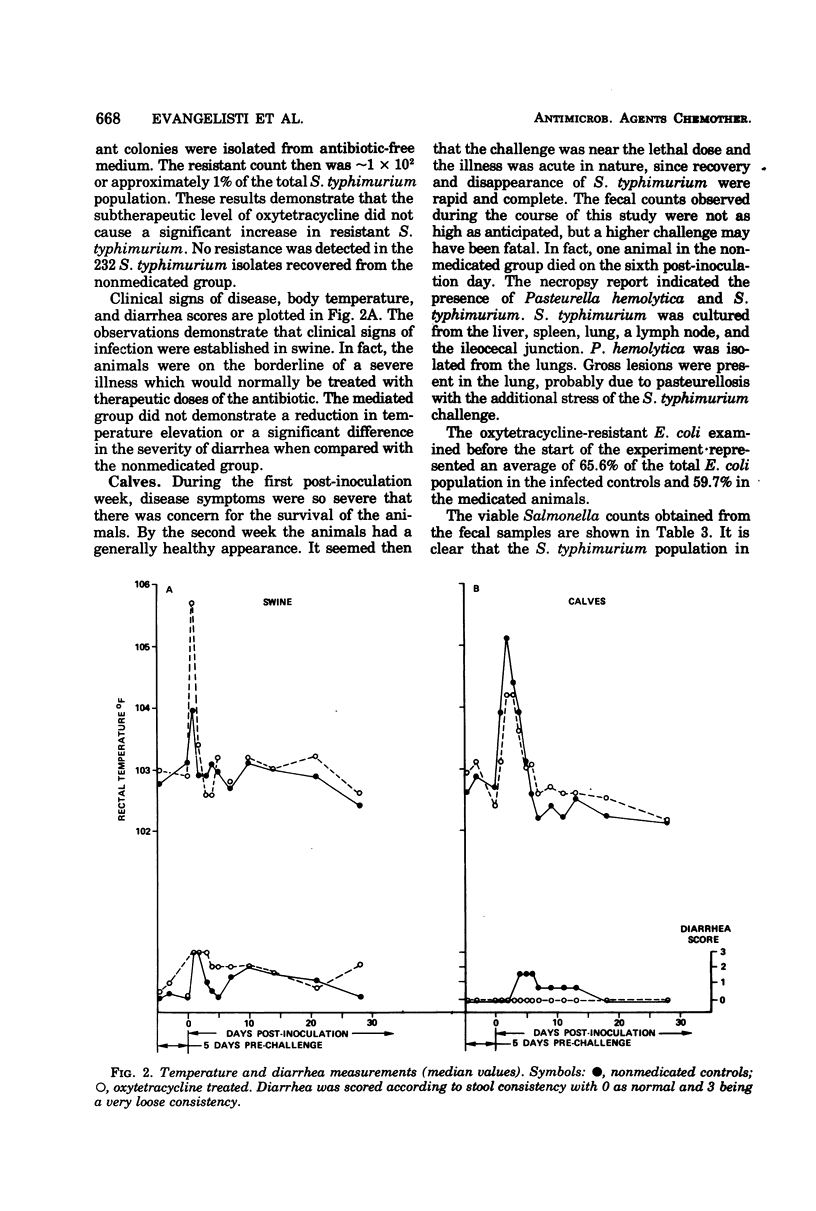
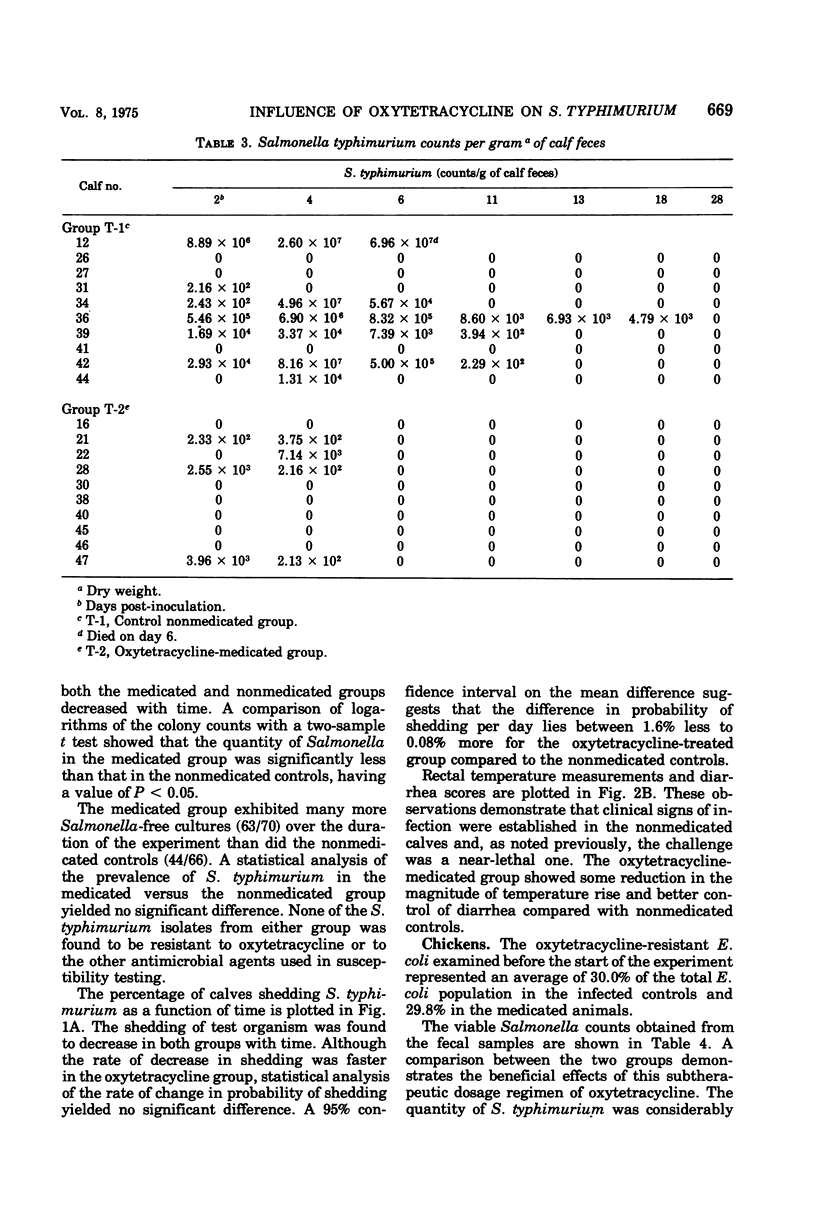
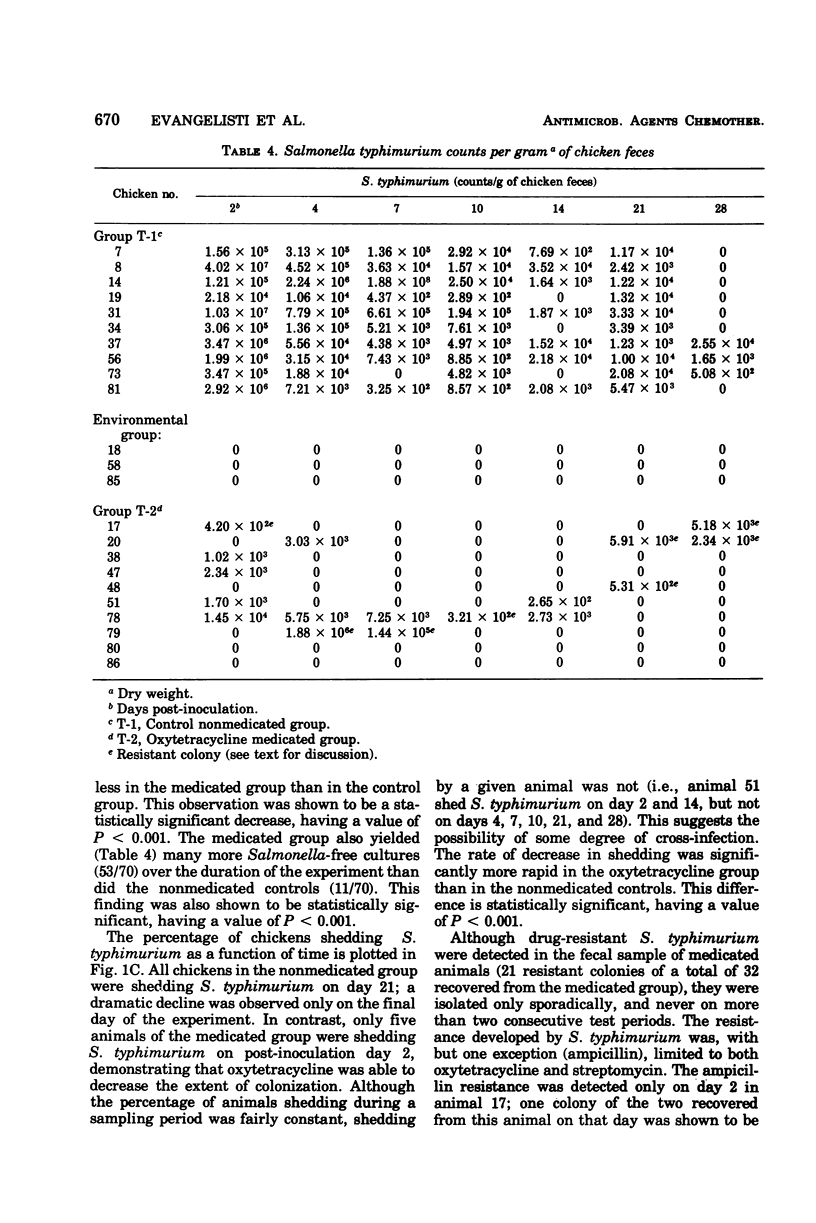
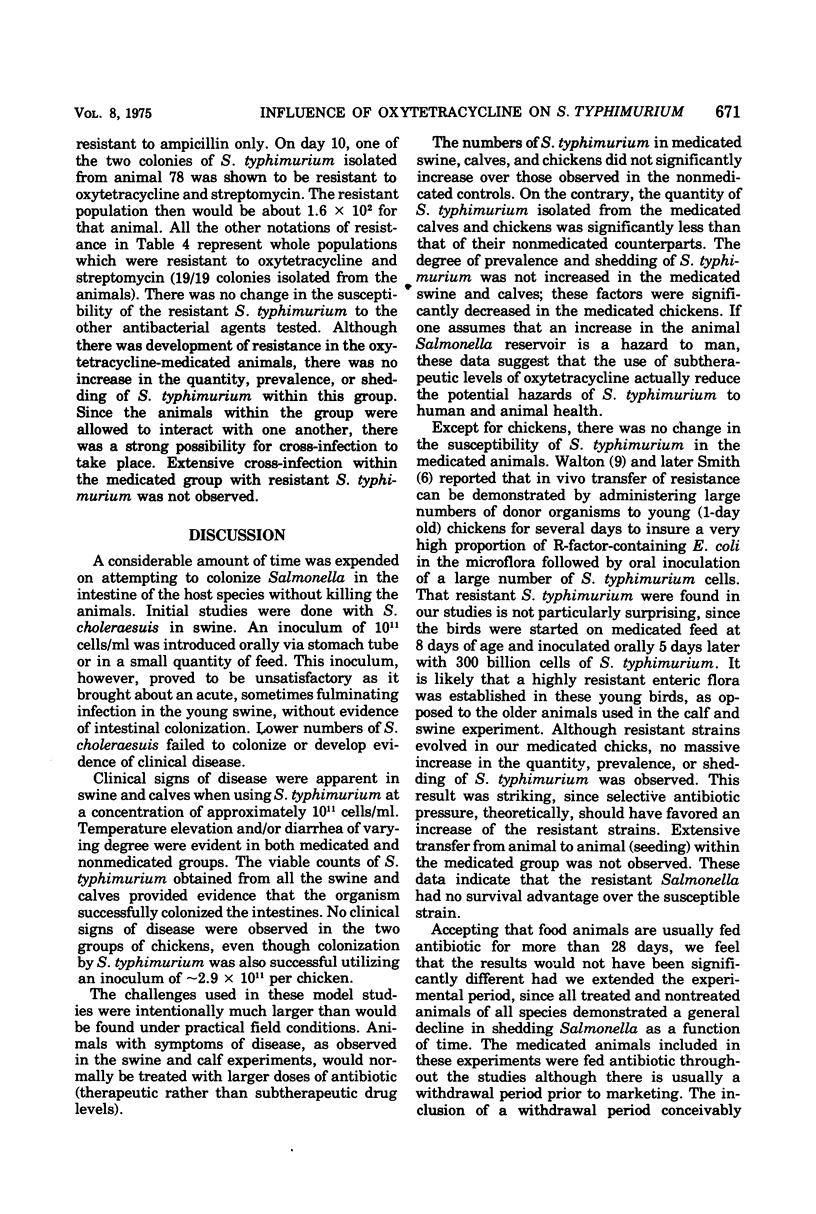
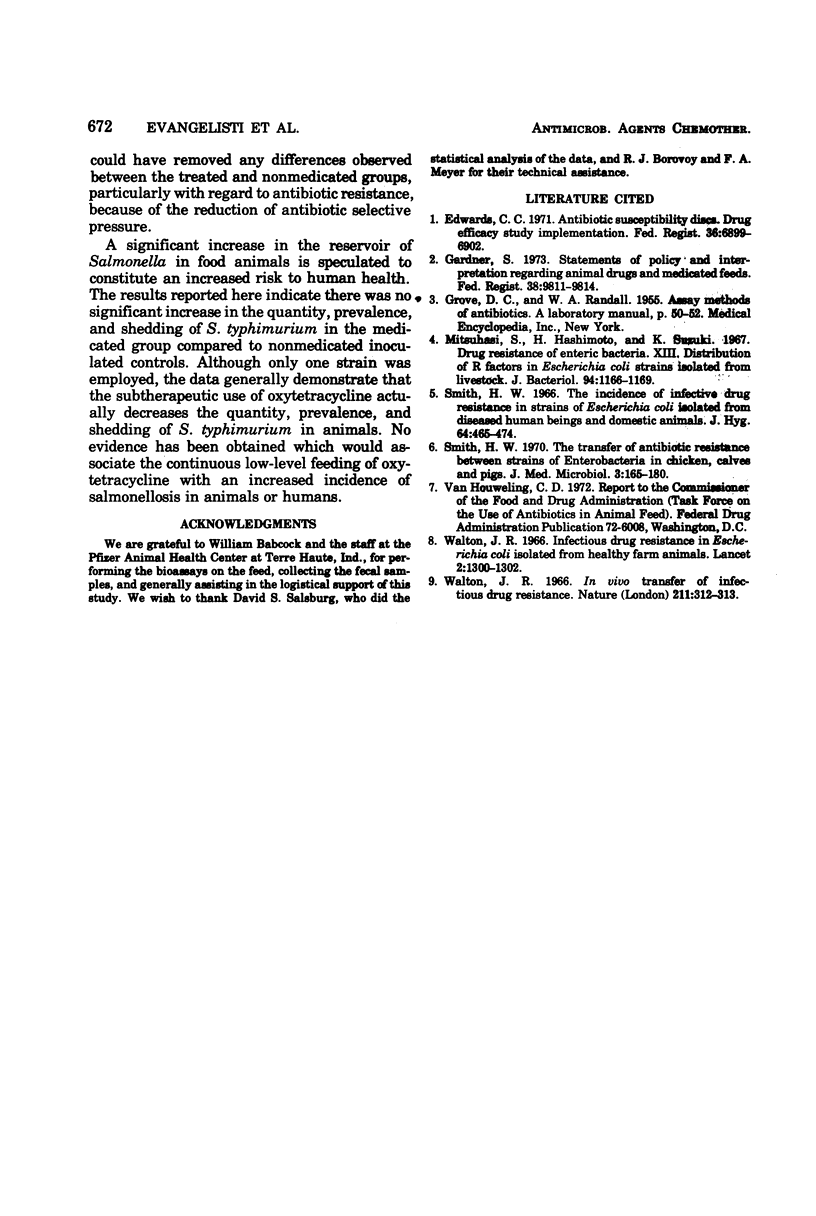
Selected References
These references are in PubMed. This may not be the complete list of references from this article.
- Mitsuhashi S., Hashimoto H., Suzuki K. Drug resistance of enteric bacteria. 13. Distribution of R factors in Escherichia coli strains isolated from livestock. J Bacteriol. 1967 Oct;94(4):1166–1169. doi: 10.1128/jb.94.4.1166-1169.1967. [DOI] [PMC free article] [PubMed] [Google Scholar]
- Walton J. R. Infectious drug resistance in Escherichia coli isolated from healthy farm animals. Lancet. 1966 Dec 10;2(7476):1300–1302. doi: 10.1016/s0140-6736(66)91705-3. [DOI] [PubMed] [Google Scholar]
- Walton J. In vivo transfer of infectious drug resistance. Nature. 1966 Jul 16;211(5046):312–313. doi: 10.1038/211312a0. [DOI] [PubMed] [Google Scholar]


